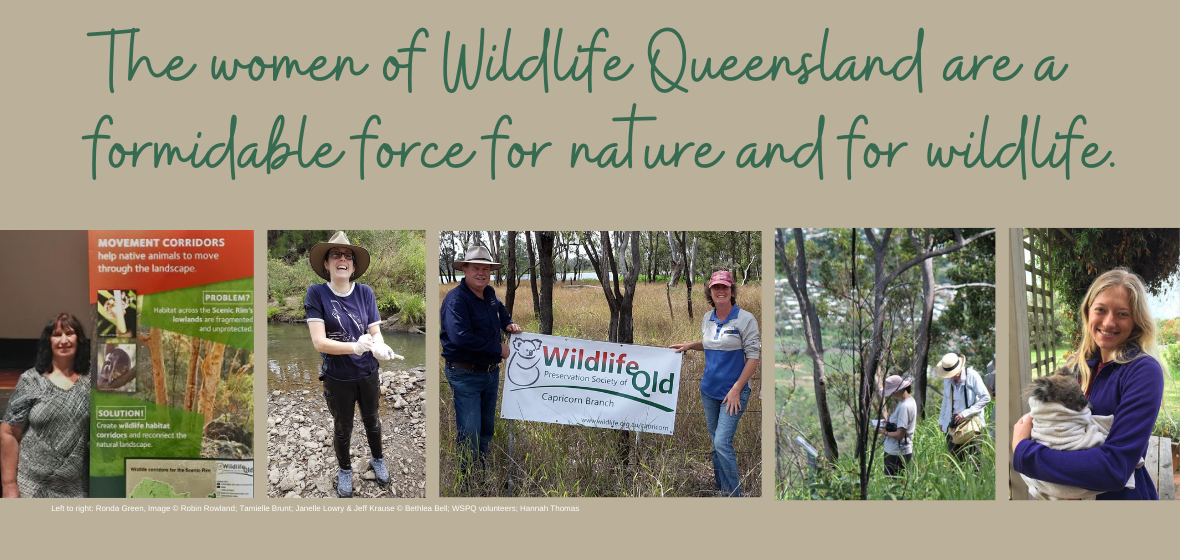11 February 2022
Today is the 7th UN International Day for Women and Girls in Science, and this year’s theme is “Equity, Diversity, and Inclusion: Water Unites Us”. To celebrate, we’ve put together a short video featuring just some of Wildlife Queensland’s passionate and dedicated women in science.
Water unites us, too, here at Wildlife Queensland. Throughout the state, WPSQ branches are involved in activities to protect our freshwater creeks, river, lakes and tributaries, as well as saltwater marshes, wetlands and coasts.
Whether it is …
- keeping pressure on the Federal Government to adequately protect Ramsar wetlands at Toondah Harbour in the Redlands
- fighting to keep our beaches natural and free from crowded commercial ventures on the Gold Coast or within Great Sandy National Park
- using eDNA techniques to survey the health of aquatic ecosystems to conserve Australia’s one-of-a-kind, iconic platypus in the Scenic Rim
- or loudly objecting to coal seam gas and mining water uses that would drain or damage vital rivers like the Dawson and the Flinders
… the women of Wildlife Queensland recognise that wildlife and people are entitled to pollution-free waterways that are accessible to all and teeming with biodiversity.
Spearheading all of these campaigns are Wildlife Queensland’s vocal and dedicated ecologists, conservation biologists, zoologists, botanists and volunteers from all ages and backgrounds. So, what better way to celebrate their contribution to conserving native flora and fauna, particularly in and around waterways, than to survey a selection of these “women of Wildlife Queensland” about their experiences working in a scientific field?
Women already make up a high percentage of Wildlife Queensland’s staff and volunteers, and many graduates in the disciplines of conservation biology and ecology are now women. However, as for many fields, recognisable barriers to involvement still exist for women, especially relating to duties caring for dependents and reduced access to high-level roles. The UN states that:
“Women are typically given smaller research grants than their male colleagues and, while they represent 33.3% of all researchers, only 12% of members of national science academies are women … Female researchers tend to have shorter, less well-paid careers. Their work is underrepresented in high-profile journals and they are often passed over for promotion.”
To achieve more equitable outcomes for women, the Royal Academy of Science International Trust (RASIT) will hold a virtual National Assembly from UN Headquarters in New York on 11 February 2022, bringing together global experts, women in science, government officials, NGOs, and corporations to discuss how water management and women can achieve the Sustainable Development Goals of social justice, economic prosperity, and environmental integrity.
Women make up ~49.6 % of the world’s population. Just as water unites us and is a resource essential to life on Earth, so too are women essential to efforts to conserve this blue planet and the incredible life forms that flourish upon it.
Today, we say thank you to all the women and girls in science who have led the way, and continue to lead the way, towards a more sustainable future for humans and wildlife.

